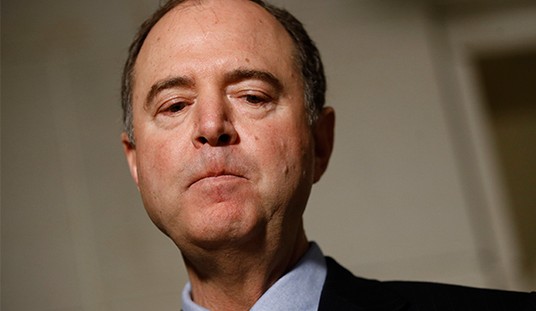British media reports that their governmental health scheme, the National Health Service (NHS), is near financial collapse. Care is being rationed at an accelerating rate as funding is exhausted. Bureaucrats are using complex mathematical formulas to determine who gets care based on how many more productive, taxpaying years they have left in their life.
If only someone had seen this coming.
Oh, they did. This new report pretty much mirrors what they were saying in 2012, when it was revealed that sick babies were being starved to death, very young and very old patients were being sent into end-of-life care for fiscal reasons, patients were having medical information and treatments withheld so that they would not choose more expensive care, and public funding of end-of-life programs was influencing doctors’ decisions about care they administered.
A new report by a British think tank studied four areas of care: sexual health services, district nursing (nurses who administer in-home care to shut-ins), planned hip operations, and neonatal care. They found that medical services are under significant financial pressure, which leads to care rationing so severe that patients often wait hours for simple pain-management treatment. They note that the problems will only grow more severe, as funding either stays level or decreases while demand grows.
The funding shortages are so severe that the number of district nurses dropped by 50% from 2000 to 2014, and another 15% from 2014 to 2016. In addition, the shortage of doctors is so severe that the NHS is recruiting hundreds of doctors from India and Pakistan, and considering regulations to conscript new medical school graduates into five-year mandatory service requirements.
In other words, this is not a short-term funding crisis. This is an inexorable, long, slow march to rationed care due solely to structural funding inadequacies that are a hallmark of governmental health care schemes.
A hospice manager interviewed for the think tank report said, “It’s a frightening time for patients and we are seeing an increasing volume of calls coming through to our advice line where people are in genuine distress.” The crisis has a massive impact on health care workers, who are having to work harder and much longer hours to make up for the shortages in care.
Care is being rationed in other ways as well. Hip replacements in some areas are not done on obese people; in other areas, no surgeries will be done at all if a patient smokes; many other surgeries are postponed and only performed if a patient is in unmanageable pain “day and night.” Tens of thousands of patients waited 18 weeks or more for routine surgeries. Wait times for many forms of care are skyrocketing.
Rationing is so bad that, in 2015, it was reported that 750 people per month die due to subpar care.
Yes, 750 people per month die in Great Britain due to rationed care. Let that sink in.
This is nothing new. Reports of rationing by the NHS have swirled for years. I wrote about it in 2012:
Several more recent reports have detailed mistreatment of patients in the NHS due more to bureaucratic than medical decisions. The most shocking of which was an audit of the Liverpool Care Pathway, which revealed that almost half of all dying patients were never told that life-saving treatment had been withdrawn.
Not to put too fine a point on it, but this is the epitome of a death panel. Bureaucrats making life or death decisions, solely for budgetary concerns. These revelations have led public officials to begin a formal inquest: “the failure to consult patients would now be examined by an independent inquiry, which will also look at payments made to hospitals for meeting targets to place people on the pathway.” [emphasis added]
We have long known about the NHS’s mathematical formula to determine how much productive taxpaying time a patient has left — you know, to pay off his or her debt to society for performing these medical procedures. Measured by bureaucrats, Quality Adjusted Life Years (QALY) lets the government coldly determine the ROI on providing care to a patient. Not whether that care should be administered as the best course of medical action. Not the care that the patient chooses. Nope. This is the care that the government determines it can afford based on the economic worthiness of the remainder of a patient’s life.
I don’t know if these bureaucrats were born ghouls, or whether being a bureaucrat transformed them into ghouls, but in the end it doesn’t matter. Giving the government this level of control over your own medical decisions is nothing short of a humanitarian crisis.










Join the conversation as a VIP Member